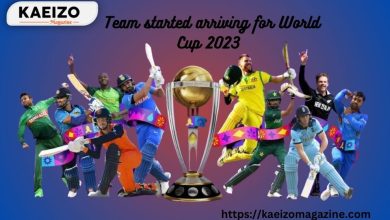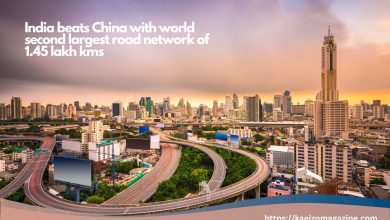Indian Marriage Norms: How Young Couples Are Rewriting Love & Marriage

A New Chapter in Indian Marriage Norms
For decades, Indian marriage norms revolved around arranged marriages where family elders carefully selected the match. These unions were not only about two individuals but also about families joining hands to ensure stability, shared values, and financial security. But times are changing.
Today, especially among people in their late 20s and 30s, the script for marriage is being rewritten. Modern Indian relationships are still deeply rooted in family traditions but are also shaped by individual choice, independence, and emotional compatibility. Young Indians are seeking life partners who are not only socially and financially suitable but also true companions, confidants, and equals.
Arranged Marriages in India: From Family Choice to Personal Partnership
The traditional idea of arranged marriages in India is transforming. In earlier generations, marriages were largely decided by parents, with limited involvement from the bride and groom. Today, families still make introductions, but the ultimate decision rests with the couple.
It’s more about “arranged introductions” than rigidly arranged unions. Couples now spend months talking, traveling, and discussing their dreams and fears before making a decision. This shift shows how new age Indian couples value compatibility, mutual respect, and partnership-first thinking, rather than just ticking boxes of caste, job, or family reputation.
Why Indian Marriage Norms Are Changing
1. Financial Independence
Young Indians, especially in urban areas, are financially independent. This financial stability gives them the freedom to prioritize love, companionship, and personal happiness over security. A study by Times of India notes that nearly 60% of urban couples today marry after building stable careers, a stark contrast to earlier generations.
2. Global Exposure
With social media, Netflix shows, and international travel, young Indians are exposed to diverse cultures and relationship models. They see marriages that prioritize equality, mental health, and personal growth. This global exposure inspires them to blend the best of tradition with modern values.
3. Mental Well-being and Happiness
Unlike earlier times when marriage was seen as a duty, today’s modern Indian relationships are about happiness. Couples aren’t afraid to seek counseling or therapy to build healthy connections. Mental health, emotional support, and compatibility are now central to relationship choices.
The Role of Dating Apps in Relationship Trends in India
The rise of dating apps has added a new dimension to relationship trends in India. Even in arranged marriages, couples use apps to understand what they want in a partner. Meeting strangers, having conversations, and exploring compatibility through these platforms has reduced the stigma around “choosing for yourself.”
Interestingly, data suggests that nearly 30% of app users in India are in their 30s, reflecting how people are balancing traditional paths with modern tools.
New Age Indian Couples and the Idea of Boundaries
Some new age Indian couples are even discussing unconventional ideas like open relationships, especially in metro cities. While still rare, this conversation highlights how Indian society is slowly opening up to exploring boundaries in marriage. However, for most couples, the priority remains emotional intimacy and building a long-lasting partnership.
Balancing Tradition and Modernity
This evolution doesn’t mean traditions are discarded. Instead, young Indians are blending old and new values. They want family blessings, rituals, and cultural roots but also personal choice and equality. For example, many couples still follow arranged marriage introductions but take months to decide, ensuring both heart and mind agree.
The future of Indian marriage norms looks like a hybrid model: rooted in tradition but open to individuality, balance, and mutual growth.
The Role of Dating Apps in Relationship Trends in India
The rise of dating apps has added a new dimension to relationship trends in India. Even in arranged marriages, couples use apps to understand what they want in a partner. Meeting strangers, having conversations, and exploring compatibility through these platforms has reduced the stigma around “choosing for yourself.”
Interestingly, data suggests that nearly 30% of app users in India are in their 30s, reflecting how people are balancing traditional paths with modern tools.
Dating apps are also influencing Indian marriage norms by changing how couples meet.
New Age Indian Couples and the Idea of Boundaries
Some new age Indian couples are even discussing unconventional ideas like open relationships, especially in metro cities. While still rare, this conversation highlights how Indian society is slowly opening up to exploring boundaries in marriage. However, for most couples, the priority remains emotional intimacy and building a long-lasting partnership.
Balancing Tradition and Modernity
This evolution doesn’t mean traditions are discarded. Instead, young Indians are blending old and new values. They want family blessings, rituals, and cultural roots but also personal choice and equality. For example, many couples still follow arranged marriage introductions but take months to decide, ensuring both heart and mind agree.
The future of Indian marriage norms looks like a hybrid model: rooted in tradition but open to individuality, balance, and mutual growth.
Real-Life Examples of Changing Indian Marriage Norms
- Urban Couples: In cities like Delhi and Mumbai, it’s common for couples to date for months—even in arranged setups—before tying the knot.
- Smaller Cities: Even in Tier-2 cities like Lucknow or Indore, young professionals are beginning to assert their choices, showing that these trends are not limited to metros.
- Statistics: According to a BBC report
The Road Ahead
As India balances tradition and modernity, arranged marriages in India will likely continue—but in evolved forms. More couples will demand equality, mental health awareness, and emotional compatibility alongside family involvement.
Ultimately, this shift signals a cultural revolution where love is not just a family arrangement but a conscious partnership. Modern Indian relationships are proving that happiness, respect, and personal growth are just as vital as rituals and traditions.
You may also like our article on Modern Wedding Trends in India”




